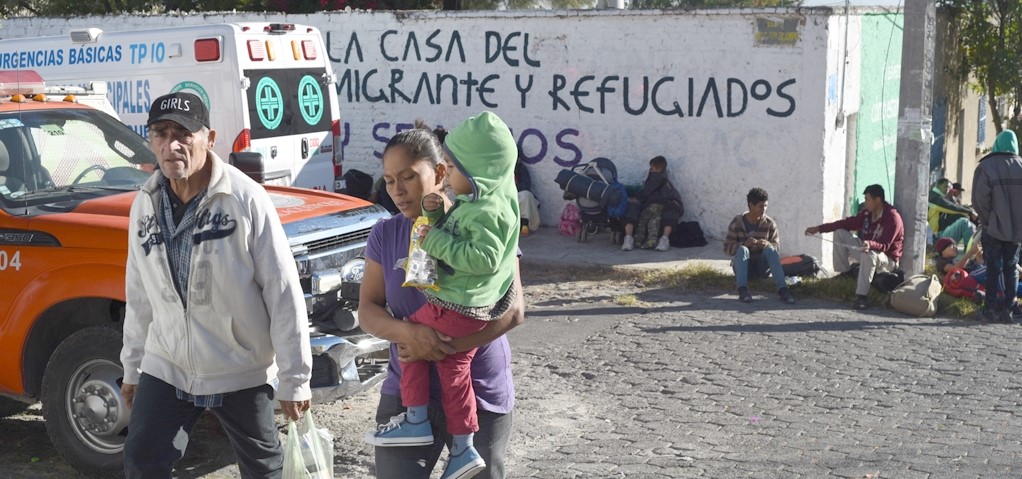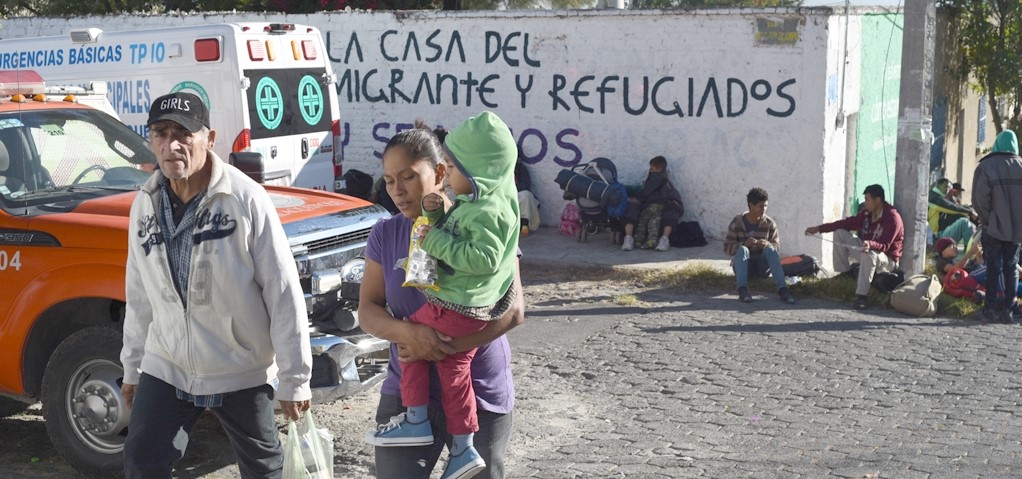Uptick in Migration Signals a Need to Support Democratic Progress in Central America

People migrate when they feel physically or economically insecure. The most egregious example of this is the socialist nightmare in Venezuela where 3.4 million have left—most in the span of the last two years.
Lacking food, medicine and work, they are also at the mercy of the most violently repressive security and paramilitary forces in the world in what is now the most violent country in the world.
Things aren’t as bad in Central America’s Northern Triangle countries of El Salvador, Guatemala and Honduras. They are all democracies for one thing. In El Salvador and Honduras, murder rates are half what they were at the beginning of this decade, thanks to U.S. and other foreign assistance. Guatemala’s violent crime rate has remained moderately low during the same period. Meanwhile, El Salvador has brought its poverty rate down to 31 percent, slightly above the average for all of Latin America.
Why, then, are people still leaving?
On the surface, the numbers don’t suggest anything near the problem that existed at the beginning of the millennium when apprehensions of undocumented (mostly Mexican) migrants were about 1.6 million along the southwest U.S. border. In 2018, the total was less than a quarter of that amount. But what is different is that Central Americans, mostly from the Northern Triangle, now make up more than half of those apprehended. And instead of mostly young men seeking work, as it was in 2000, many of those traveling north are families with children.
Some are farm workers who claim drought has affected their crops. Families say their neighborhoods are plagued by violent gangs. Still others lack much formal education and cite lack of job opportunities. Many say that entrenched corruption and impunity make getting ahead in their countries difficult. Poverty rates in Guatemala and Honduras remain stubbornly high at 59 and 66 percent respectively, meaning that jobs that pay living wages are in short supply.
Entrenched drug trafficking organizations in all three countries corrupt businesses, distort economies and feed into gang and criminal violence. There is no single reason these families are migrating. However, it is obvious that certain conditions are driving them out and stable, low unemployment in countries like the United States are powerful attractants.
Now a new non-traditional element has emerged—the perception that the costs and risks of informal migration have gone down. While human traffickers used to charge thousands of dollars to smuggle a person across borders, people are beginning to travel in caravans across Mexico and to the United States which leverage safety in numbers rather than paying smugglers for security. And they are doing so with the help of social media.
As smartphone use is pervasive in these countries, so too is the use of texting applications and social networks. Last October, a Honduran radio host and former congressional deputy posted a notice on his Facebook page announcing a “march of the migrants.” By the time the “march” arrived in Tijuana, it reportedly had gathered about 7,000 participants.
Two things are needed to address this situation. First, surrounding countries with an interest in Central American stability and prosperity need to step up their support for better law enforcement, transparent governing practices and effective service delivery. The safer and more prosperous Northern Triangle nations become, the less people will want to leave.
IRI programs in the Northern Triangle have helped communities improve service delivery, enhance public safety, become more accountable to local citizens, involve citizens more in municipal decision-making, fight corruption, become more attractive to legitimate business and better connect with national executive and congressional leadership. Such programs at the local and national level have had proven benefits. But the common practice of addressing these problems in a handful of communities at a time, as donor nations have done in the past, doesn’t cut it. These programs need to be seriously scaled up.
Second, migrant destination countries need to engage in more aggressive information campaigns to let migrants know the dangers they face in transiting other countries illegally and hurdles that await them on the other side. Interviews with migrants suggest many don’t have a clear idea of what is or is not waiting for them along the way and at their destination. They need better information to help them decide whether moving makes sense and how that might be accomplished in a safe and legal way.
Central America’s Northern Triangle countries of El Salvador, Guatemala and Honduras have made substantial progress since eschewing military dictatorship for civilian elected rule in the 1980s thanks to U.S. support for democracy and good governance there. More recently, they’ve made strides in reducing violent crime, poverty and finally attacking corruption. Perhaps the pace has not been quick enough to keep some citizens from deciding they’ve had enough. The trick now is to help put that progress on a faster track, by expanding support for programs that make hometowns safer and more prosperous, and governments more accountable and effective.
In Venezuela, a decaying dictatorship is trying to snuff out the democratic impulses of its people. By comparison, investing in the Northern Triangle where democracy is making slow but steady progress, makes imminent sense. Let’s help these neighbors step on the gas.

Top